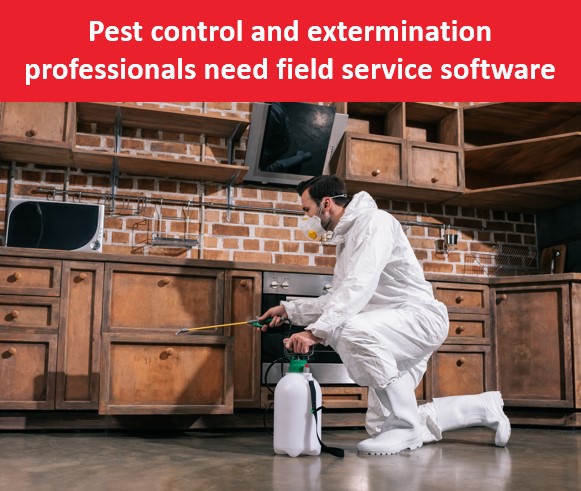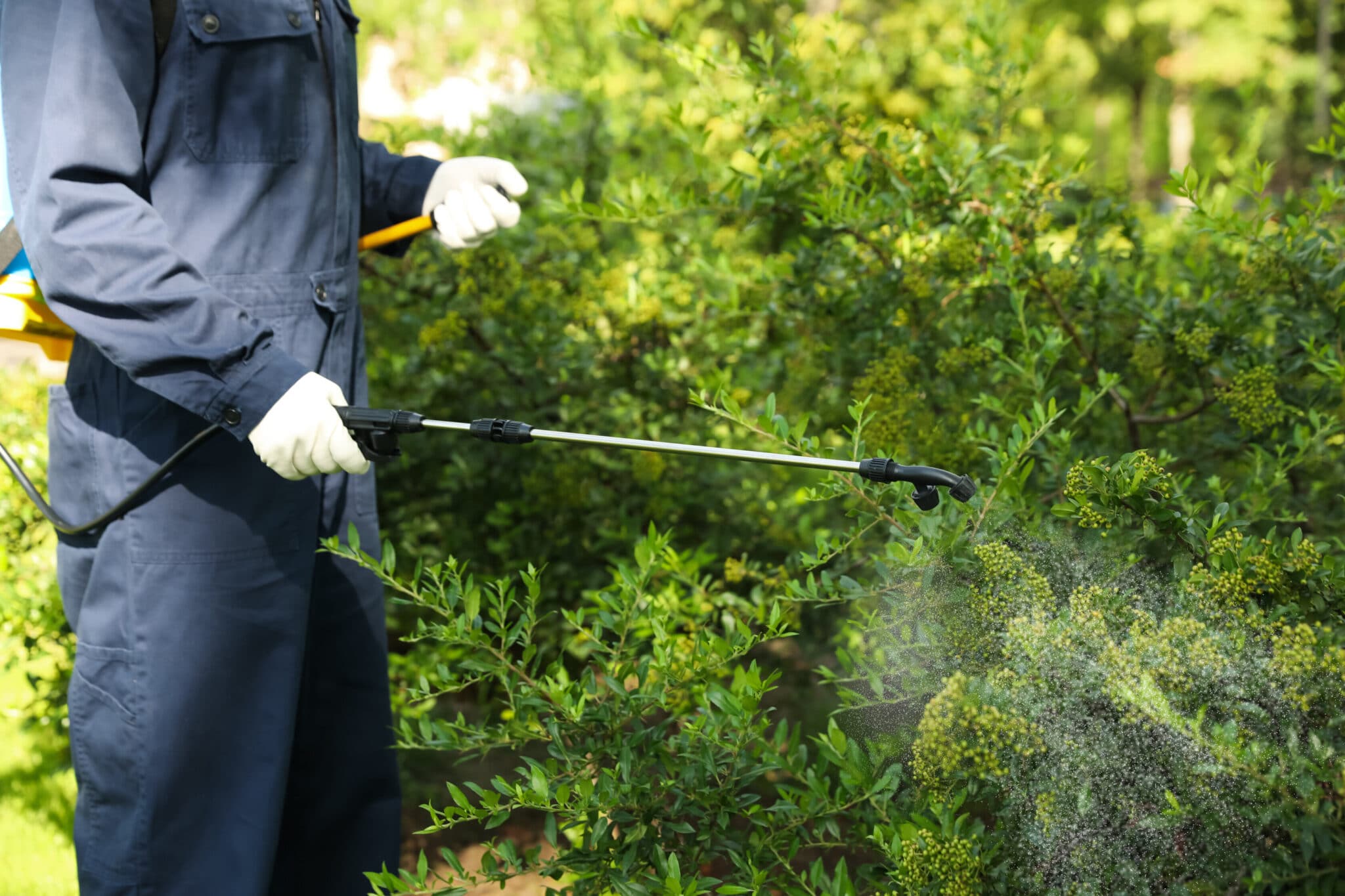Safe and Trustworthy Parasite Control for Lasting Defense
Efficient pest management calls for a multifaceted method that stabilizes environmental integrity with the need for efficient bug reductions. The nuances of these techniques may not be promptly clear, triggering a more detailed assessment of the techniques that can lead to sustainable parasite control outcomes.
Comprehending Bug Control Approaches
Insect control encompasses a selection of techniques focused on handling and eradicating unwanted bugs and rodents that can threaten both health and property. Understanding these approaches is critical for reliable bug monitoring.
The main groups of parasite control approaches consist of mechanical, organic, and chemical strategies. Mechanical techniques involve physical barriers and traps to avoid parasite entrance and capture undesirable varieties. Utilizing screens on home windows or utilizing sticky traps can substantially reduce bug populations without introducing harmful compounds - exterminator coquitlam.

Chemical parasite control is usually one of the most acknowledged approach, using chemicals to eliminate pests. These chemicals can be reliable however must be utilized with caution to stay clear of unfavorable impacts on non-target types and the setting.
Advantages of Eco-Friendly Solutions
Exactly how can eco-friendly remedies change bug control practices? The adoption of eco-friendly pest control techniques uses numerous benefits, significantly improving the performance and safety and security of pest administration.
Another benefit is the positive impact on local biodiversity. Eco-friendly remedies are created to target certain bugs while maintaining helpful bugs and wildlife, promoting a well balanced ecosystem. This method aligns with the expanding customer need for sustainable methods, boosting the online reputation of parasite control suppliers.
Integrated Insect Administration Strategies
The application of green solutions normally leads to the fostering of Integrated Insect Management (IPM) techniques, which additionally improve insect control efficacy. IPM is an all natural strategy that combines numerous strategies to manage insect populaces while reducing ecological influence. This strategy highlights the use of biological, cultural, mechanical, and chemical controls, guaranteeing a lasting and balanced technique of pest management.
One essential facet of IPM is the complete assessment of insect activity and environmental conditions. By keeping an eye on insect populaces and determining their life cycles, specialists can apply targeted interventions that interfere with the pest's habitat or lifecycle, minimizing dependence on chemical pesticides. In addition, social practices such as plant turning and environment adjustment can significantly decrease parasite establishment and recreation.
Another important part is making use of organic control agents, such as useful bugs or microbes, which can normally reduce parasite populaces. When chemical applications are needed, IPM focuses on the use of low-risk pesticides and uses them uniquely, decreasing direct exposure to non-target organisms and people.
Integrating IPM techniques not only boosts pest control performance however also promotes a safer environment, straightening with the expanding need for sustainable practices in insect monitoring.
Safe Practices for House Owners
Understanding the relevance of risk-free methods in insect control can empower homeowners to properly handle bug issues while protecting their health and the try these out atmosphere. Carrying out non-toxic approaches and safety nets is critical in decreasing exposure to harmful chemicals.
Homeowners should initially analyze their setting for conditions that draw in parasites, such as standing water, clutter, and food waste. Frequently cleaning and securing access factors can browse this site deter pests from getting into the home. Making use of all-natural deterrents, such as vital oils or diatomaceous planet, can give efficient options to chemical pesticides.
When chemical treatments are essential, home owners must select items that are especially identified as risk-free for domestic use. It is vital to adhere to application standards meticulously to avoid overexposure. Using targeted therapies in locations where parasites are recognized, instead than covering splashing, can substantially lower chemical usage.
Finally, preserving open interaction with parasite control professionals is essential. Home owners ought to inquire regarding the safety of items used and demand eco-friendly choices whenever possible. By taking on these secure methods, property owners can create a healthier living setting while properly taking care of insect problems.

Tips for Long-Term Security
Developing a bug management approach that highlights long-term security can substantially improve the effectiveness of the secure methods formerly gone over. To achieve this, homeowners need to implement routine inspections of their property, concentrating on concealed areas such as attic rooms, cellars, and crawl areas. Early discovery of bug task is essential in preventing infestations from holding.
These techniques minimize attractants that draw parasites into the home. Sealing entry points, such as fractures around windows and doors, investigate this site can effectively obstruct possible bug access.
Landscaping must also be considered; maintaining plants cut and maintaining a range in between vegetation and the home lessens concealing places for bugs. Making use of all-natural deterrents, such as important oils or diatomaceous planet, can better inhibit infestations without considering severe chemicals.
Last but not least, teaming up with a specialist insect control service for regular examinations can give an added layer of safety. These experts can use tailored recommendations and progressed treatments, making certain that your home stays protected against bugs in the long-term.
Final Thought
In conclusion, secure and dependable insect control requires a diverse method that emphasizes green approaches and incorporated insect management. By applying all-natural deterrents, conducting routine evaluations, and preserving appropriate cleanliness, residential or commercial property proprietors can significantly minimize insect populations while securing useful pests and the setting. Cooperation with expert insect control solutions improves the efficiency of these techniques, making certain tailored remedies that supply enduring security and comfort versus future problems.
Reliable bug administration needs a complex approach that stabilizes eco-friendly integrity with the need for efficient pest suppression. The fostering of environment-friendly parasite control approaches provides many benefits, significantly boosting the effectiveness and security of insect management.The implementation of environment-friendly solutions naturally leads to the adoption of Integrated Pest Administration (IPM) approaches, which better improve bug control efficiency. exterminator coquitlam. By checking bug populations and recognizing their life cycles, specialists can apply targeted treatments that interfere with the bug's environment or lifecycle, decreasing reliance on chemical pesticides.In final thought, trustworthy and risk-free parasite control requires a multifaceted strategy that stresses environment-friendly techniques and integrated insect administration
Comments on “Effective Coquitlam Pest Control Solutions for a Pest-Free Environment”